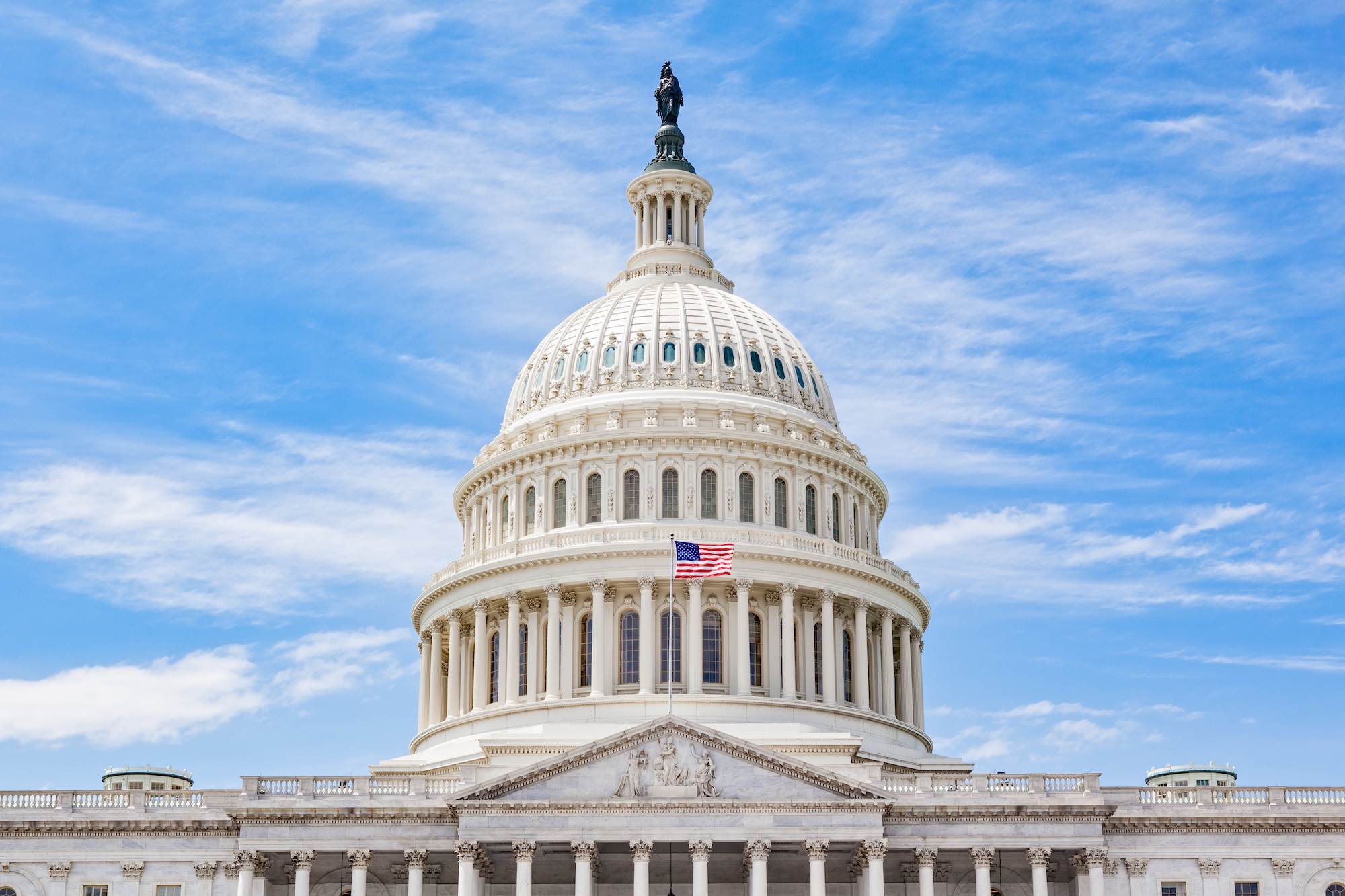

Looking back at a decade of shifting the consensus on China
RECOMMENDED READING
A very wise mentor of mine once advised, for weathering the ups and downs of a career in public policy, “never overestimate what you can accomplish in two years, or underestimate what you can accomplish in ten.” I was still working as a management consultant ten years ago. But I had begun writing for National Review under the tutelage of Reihan Salam, and this week marks the tenth anniversary of my cover essay for the magazine: “Fight the Dragon—The case for retaliating against China on trade.”
The argument was, at the time, regarded as somewhat outlandish, so much so that NR decided before it went to print to publish a rebuttal in its following issue from Michael Strain and Ramesh Ponnuru. Taken together, my essay and their response, “Fight Not the Dragon,” provide not only a time capsule of the catastrophically bad trade economics that dominated the right-of-center a decade ago, but also a cautionary tale of overconfidence in ossified orthodoxy and brute-force ideological enforcement: Yes, they really did think this. And yes, this is how they treated heresy.
What comes through most clearly in their full-throated defense of free trade with China is the reliance on dogmatic repetition of what the models said, and contempt for anyone who might think otherwise. “Cass himself is prisoner to a misconception,” they began, “for he does not understand the model he is criticizing.” In fact, “the classical case for free trade was developed in a mercantilist world, and it argued that free trade almost always benefits the country adopting it, regardless of the trade policies of other nations.”
If this is true in the classical model, it holds only because that model assumes that capital is immobile, goods are always traded for goods, and thus trade deficits cannot persist. In a classic piece for the American Economic Review in 1993, Paul Krugman had written, “in the last decade of the 20th century, the essential things to teach students are still the insights of Hume and Ricardo. That is, we need to teach them that trade deficits are self-correcting.” The ever-expanding U.S. trade deficit practically begged reconsideration of the theory.
Instead, with the fundamentalist’s confidence that whatever reality presents is indeed what the scripture hath foretold, Strain and Ponnuru simply asserted that up was now down and in fact persistent trade imbalances were a natural part of their model, seemingly unaware that it contemplated no such thing. “Any economic model that denied that trade imbalances could persist would be dubious, as all you have to do is look out the window to see plenty of persistent trade imbalances,” they wrote. Proof of this was a flippant and inapt analogy: a nation’s trade deficit was like “yours with the grocery store, for example.” A person earns money through labor and then spends it in a variety of locations, from which some lesson should be taken about how the international economy functions.
While the theory was bad enough, the factual assessment was even worse, again dominated by a determination to fit reality to divine wisdom. Concern over “the gathering economic threat of China is also poorly timed,” they asserted rather wishfully—a view to which the subsequent ten years has been unkind to say the least. Their observation that “China’s currency has been appreciating for several years now” was true of the period from 2010–14 but came at the cusp of a precipitous fall in the yuan’s value to below its 2010 level, where it still languishes today. Their observation that “the ratio of imports to exports in our trade with China has been shrinking as well” was likewise useful as a cherry-picked data point but which had no predictive value. The ratio that year was 3.8-to-1. By 2018 it had reached 4.5-to-1.
The stops-you-in-your-tracks line, though, is this one:
While it may be in the interest of some U.S. workers and firms to see China’s trade practices stopped, it is not in the nation’s interest as a whole to increase the price of imports.
Forget what the theory says, forget the trends in the data, forget which retaliatory policies might or might not work, the deeply held conviction of the economic policy establishment was that stopping China’s trade practices was not in the national interest anyway, that interest being defined as the cheapest possible imports. I am sometimes accused of caricaturing pre-Trump market fundamentalism. If anything, I think, I am usually being too kind.
I wrote a short response to Strain and Ponnuru, which in many ways is sharper than the initial entry and reads more like the arguments I spend most of my time making today. That makes sense, I suppose, insofar as I’ve been working to correct mistakes like Strain and Ponnuru’s ever since:
- “China’s imports flood the U.S. market, but China does not turn around and import U.S. goods in return. Instead, it hoards its surplus of dollars and loans it back. Which is a multi-step way of saying that it sends these imports across on credit.”
- “The resulting long-term cost in destroyed firms and eroded economic strength greatly exceeds any short-term benefit in cheap goods.”
- “Even if we took seriously the idea that running hundreds of billions of dollars in trade deficits while borrowing hundreds of billions of dollars is a healthy financial balance for the nation, we would still have to account for the uneven impact of that balance within the nation.”
Ponnuru was clearly annoyed by this unlearned management consultant who was not even a deacon in the Church of Free Trade and simply did not understand. On NR’s “The Corner,” he replied:
As with [Cass’s] original article, there’s a high verbiage to substance ratio, so there’s no need to have another lengthy round. He is quite right to say that we made some pretty basic points in our comment on his article. We did so because he got the basics wrong. He neither owns up to it nor contests our point. … How to deal with China and its problematic practices is a subject that deserves careful and thoughtful attention. Perhaps someone else can provide it.
I linger on Strain and Ponnuru because they were the appointed respondents at National Review, but one can find the same sentiments elsewhere. Commentary editor John Podhoretz, always eager for an ill-informed pile-on, applauded: “Ouch. When Ramesh (with Michael Strain) goes for the jugular, the jugular is bled dry.” The Heritage Foundation published a rebuttal in the Daily Signal that made many of the same points, likewise lamenting my “failure to comprehend” and “lack of understanding.”
Always that lack of understanding. Never a disagreement; always that the outsider does not understand. Enthusiasm for free trade with China, by contrast, was driven “by an understanding of basic economics as explained by Adam Smith, David Ricardo, Joseph Schumpeter, Milton Friedman and … well, just about every living economist,” wrote Bryan Riley and William Wilson for Heritage. How ridiculous was the idea that we should confront China’s abuses? “One can almost imagine Cass posting armed guards at the entrance to every Walmart and Target in the country to protect shoppers from the threat of low-priced imports.”
Much can indeed change in 10 years! Heritage, of course, has reversed its view of the economic relationship with China. So have leaders in both political parties, and an increasing number of economists. “People like me grew up with the view: If people send you cheap goods, you should send a thank-you note,” said Secretary of the Treasury Janet Yellen recently. “That’s what standard economics basically says. I would never ever again say, ‘Send a thank-you note.’”
But in the legacy institutions of the Old Right, I worry that not enough has been learned, on either substance or style. Last month, for instance, Strain tweeted a punching-fist emoji in support of Paul Krugman’s quote that, “the economist’s case for free trade is essentially a unilateral case: a country serves its own interests by pursuing free trade regardless of what other countries may do.” That should sound familiar, it’s almost verbatim the statement of theory that opens “Fight Not the Dragon.”
Would Strain still apply this theory to China? “If we could go back in time to 2017 and I were king, we would not have implemented the Trump tariff regime,” he explained. “We would have needed to address China’s violation of international norms and rules. Addressing China’s bad behavior through building a coalition to pressure China would have been much more effective than the Trump tariffs.”
While cooperation sounds nice, “this is not really a solution, though, so much as an act of faith. How to bring about this international coordination for a course of action that no major developed-world government currently wishes to take — and that all of them have good reasons to refrain from taking, there being competent economists advising each of them — is left completely unclear.” That’s not me talking; it’s Strain’s view from ten years earlier.
In the parlance of the Left, my objective here is not to call out those who have been most wrong but rather to call them in. The culture of the Old Right’s legacy institutions continues to be one that celebrates their self-perceived “obliteration,” “devastation,” “dismantling,” and “refutation” of arguments to which they have lost the public debate. Such epistemic closure renders them irrelevant to policymaking efforts where their insights might otherwise be of real value. What’s needed is some accountability and some reflection. Acknowledging a narrow point where you were wrong and moving on is easy. Understanding why you were wrong, what assumptions or habits of thought led you astray, and thus where else you are probably wrong as well—that’s progress, perhaps of the kind we could accomplish within the next two years, rather than waiting another ten.
Recommended Reading
20 Years of “Free Trade” with China
We have adapted Senator Rubio’s speech as an essay, which we are pleased to present as this week’s Compass Point: Trading It All Away.
‘Free Trade’ Is a Story of Broken Promises. America Needs Tariffs
Globalization has weakened our industrial base, eroded communities and ruined job prospects. Tariffs are essential to restoring our future.
The Conservative Confusion on Globalization
The question is not will we manage our economy’s interaction with the global market, but how, writes American Compass executive director Oren Cass.











